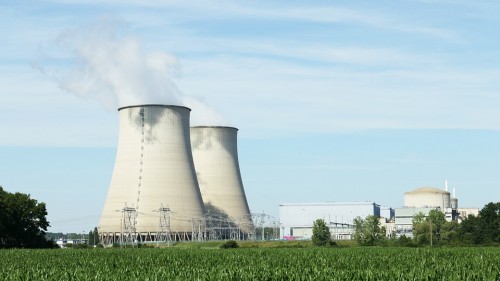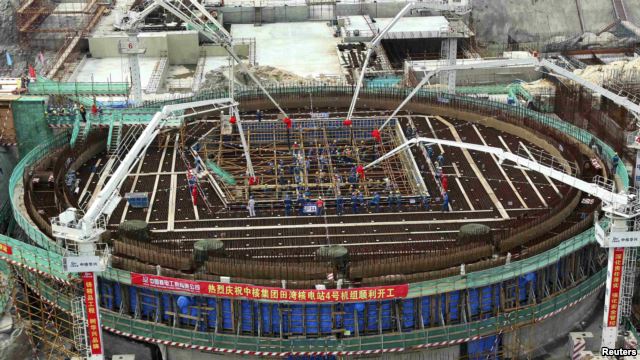RECOMMENDED VIDEOS

Conergy Solar Energy Services Portfolio
Conergy Asia & Me Pte Ltd

Greentech EE: INVT Frequency Inverter
Greentech EE Engineering

+SOLAR Project Showcase
Plus Solar Systems Sdn Bhd

ECO-EZY : Minilux Dualtech Sensor
Eco-ezy Sdn Bhd

Times-lite Electrical Engineering : Design & Build…
Times-Lite Electrical Engineering Sdn Bhd
Related Stories
The largest solar farm apiary in the US opens this week
New study suggests that plastic waste may be transformed into usable energy
Uravu’s zero-electricity Aqua Panels produce gallons of water from thin air
104% of Portugal’s electricity consumption in March came from renewable energy
Germany Sets New Solar Record By Meeting Nearly Half of Country’s Weekend Power Demand
29 May, 2016

Cambodia and Thailand edging closer to nuclear power
Renewable Energy & Energy Efficiency | THAILAND | 30 May, 2016
Published by : Eco Media Asia
Scales tipping in the two countries as Asean energy demand rises with economic growth
Step by step, Cambodia and Thailand are edging towards nuclear power generation as the region hunts for vast, stable power sources to fuel rapid development and improve the livelihoods of growing populations. Cambodia and Russia recently signed two deals to set up a nuclear energy information centre and a joint working group on peaceful uses of atomic energy.
Neighbouring Thailand's appointed legislature has passed a Bill that strengthens the regulatory framework for the use of radioactive material.
Although neither government has announced immediate plans to build nuclear power plants, experts say these developments lay the groundwork for such projects in the future if the two nations choose to proceed.
The public needs to be educated and consulted in nuclear energy projects if they are to succeed, said Dr Olli Heinonen, a senior fellow at Harvard University's Belfer Centre for Science and International Affairs. Strong regulatory frameworks also need to be in place.
The former deputy director-general of the International Atomic Energy Agency said Thailand needs at least a decade to build a nuclear power plant, and Cambodia far longer. "Just to build a nuclear power plant, in the building phase, you need about 1,000 engineers working with various aspects of the project," he told The Straits Times.
As the debate over nuclear grows, so do the region's power needs. According to the latest Asean Energy Outlook report, which forecasts trends up to 2035, demand for energy is expected to outstrip supply unless strong measures are taken to manage growth.
Within South-east Asia, Vietnam is considered a forerunner in nuclear energy, having made concrete plans to build at least one power plant with Russian aid. Last year, however, it decided to delay construction until 2020, pending further safety assessments, local media reported.
In 2011, Thailand also delayed plans to build its first nuclear power plant after seeing the damage caused by the Fukushima nuclear disaster.
Even so, nuclear energy remains on Thailand's long-term horizon. In its latest power development plan, which maps out energy sources for the 2015-36 period, it envisions having two nuclear plants generating 5 per cent of the country's power in 2036.
The middle-income nation, which expects electricity demand to grow 2.67 per cent a year, has been trying to reduce its heavy reliance on natural gas imports.
However, with any hydropower projects likely to come up against stiff local opposition, it has been looking increasingly at coal-fired plants instead. In Cambodia, 66 per cent of the population had no access to electricity in 2013.
But consumption has been rising rapidly in tandem with economic growth. According to statistics from the International Energy Agency, the country consumed 3,306 gigawatt-hours of electricity in 2013 - a 62 per cent jump from 2010. Most of its electricity is imported, but it has been trying to adjust the balance through the construction of large-scale hydropower plants.
Cambodia's nuclear steps are far more modest.
Under the memorandum of understanding signed with Russia's state-owned nuclear corporation, Rosatom, there will be a nuclear energy information centre directed at children and students. It will let Cambodians "get a better understanding of nuclear energy principles and the perspectives of national nuclear energy and industry development, and also raise the prestige of the profession among young people", said Rosatom, the world's third-largest developer of nuclear reactors, in a press release.

The Tianwan Nuclear Power Plant Lianyungang, Jiangsu Province,by Rosatom Russia
The two countries will also hold regular meetings to define and implement joint projects.
Rosatom's Asia director, Mr Egor Simonov, told The Straits Times that a nuclear energy industry would have a "massive cumulative effect" on the economy. He pointed to new skilled jobs, new tax revenues, improvements in the educational system and the development of fundamentally new technologies and science.
Environmentalists are wary. "We should think about the true cost of nuclear energy," said Ms Chariya Senpong, a climate and energy campaigner for advocacy group Greenpeace.
"We have to think in terms of the cost of uranium mining, the burden of nuclear waste and the environmental impact of a reactor leaking in the future," she said.
Much of the opposition to nuclear power plants stems from the region being prone to natural disasters. Experts say that, even though plants could be designed to withstand such events, much would also depend on how safety standards are enforced.
Video source : Youtube | Nuclear Energy Explained: Risk or Opportunity by WhatTheWhy
Article by Tan Hui Yee at The Straits Times Asia
Read more news at The Straits Times Asia
Read more news at The Straits Times Asia
